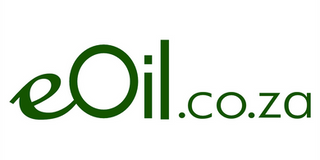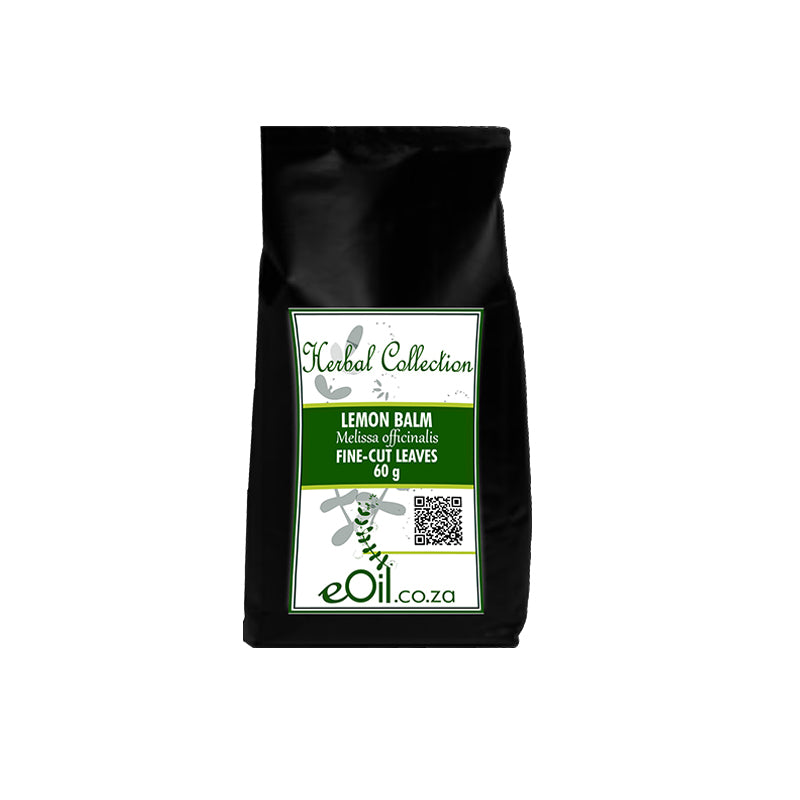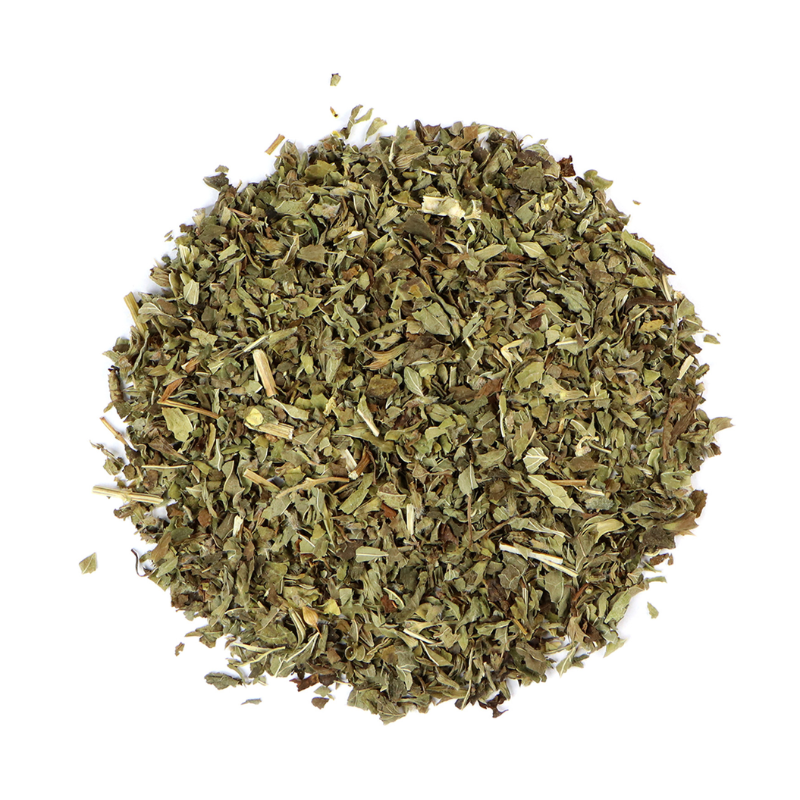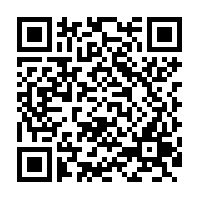Lemon Balm Dried Organic ( Melissa officinalis ) | Herbal Collection
Lemon Balm Dried Organic ( Melissa officinalis ) | Herbal Collection - 60 g cut is backordered and will ship as soon as it is back in stock.
Description
Description
TRADITIONALLY USED FOR
Lemon balm (Melissa officinalis) is a perennial herb in the mint family native to the Mediterranean region.
It has been used for centuries for its medicinal properties and benefits.
The leaves of the plant have a lemony aroma and are rich in various bioactive compounds, including flavonoids, terpenoids, and phenolic acids.
Here are some of the key properties and benefits of lemon balm leaves:
- Anxiolytic and antidepressant effects: Lemon balm has been shown to help reduce anxiety and stress, and may have mild antidepressant effects. Its calming properties are attributed to the presence of compounds such as rosmarinic acid and other terpenoids, which interact with neurotransmitters in the brain.
- Cognitive enhancement: Lemon balm has been found to improve cognitive function and memory, possibly by inhibiting the enzyme acetylcholinesterase, which breaks down the neurotransmitter acetylcholine.
- Sleep improvement: Lemon balm is often used as a natural remedy for insomnia and sleep disorders due to its mild sedative properties. It may help relax the nervous system, making it easier to fall asleep and stay asleep.
- Antioxidant and anti-inflammatory properties: Lemon balm is rich in antioxidants, which can help protect the body from damage caused by free radicals. Additionally, its anti-inflammatory properties may help reduce inflammation and alleviate symptoms of various inflammatory conditions.
- Antiviral and antimicrobial properties: Lemon balm has demonstrated antiviral properties against viruses such as herpes simplex, and its essential oil has shown antimicrobial activity against a range of bacteria and fungi. This makes it a potential natural remedy for minor infections and skin conditions.
- Digestive health: Lemon balm has been traditionally used to alleviate digestive discomfort, such as bloating, gas, and indigestion. It may help relax the muscles of the gastrointestinal tract and has antispasmodic properties that can ease cramps and stomach pain.
- Cardiovascular benefits: Some studies suggest that lemon balm may have a positive effect on heart health by reducing blood pressure, improving blood lipid profiles, and reducing the risk of heart disease.
- Support for the immune system: Lemon balm may help boost the immune system by stimulating the production of immune cells and enhancing their function.
It is important to note that while lemon balm has many potential benefits, more research is needed to fully understand its effects and confirm its efficacy. As with any herbal supplement, it's crucial to consult with a healthcare professional before using lemon balm, especially if you are pregnant, breastfeeding, or taking medication.
INFORMATION
Source : http://www.wikiphyto.org/wiki/Melisse
Reference on http://www.wikiphyto.org
Translation in English by Google Translate (go to the page of the source linked | on Chrome cellphones go on the 3 dots on the top right and select translate in your preferred language | on laptop right click your mouse and select option translate when hoovering on the page
plant name
Melissa, lemon balm (English)
International Latin denomination
botanical family
Lamiaceae
Description and habitat
- Herbaceous plant from 30 to 80 cm sometimes spontaneous in cool and shady places, cultivated throughout Europe
- Oval, dark green, embossed and serrated leaves, with a very pleasant lemony smell
- Flowers in axillary cyme with a white corolla sometimes spotted with pink
History and tradition
- Lemon balm has been used since Hippocrates (4th century BC) and Theophrastus (3rd century BC), then by Paracelsus (15th century AD)
- Its name would come from the Latin "melissophyllon", itself coming from the Greek "phyllon" (leaf) and "melissa" (bee), because it is a very honey-producing plant [1]
- It was used in sorrows (to drive away dark thoughts) and as a cordial (drink intended to stimulate the functioning of the heart)
- We find this use in the liqueurs of the monks of the Chartreuse, the Carmelites, and the Benedictines [2]
Parts used
- Dried leaf and leafy stem
- Essential oil distilled from the leaves
Dosage forms available
- Aerial part mother tincture
- aerial part EPS
- Dry extracts (but no HE)
- Aerial part essential oil
Usual dosages
- Sedative at low dose from 12.5 to 25 mg/kg in mice
- Reduces stress at a dose of 600 mg of extract per day
Composition
Main components of the plant
- Essential oil (0.05 - 0.3%) with 50% citrals (mixture of geranial and neral ) and citronellal (lemon aroma)
- Monoterpene glycosides
- 4% rosmarinic acid (called "tannin of the Labiatae" or Lamiaceae ), chlorogenic acid and caffeic acid ,
- Triterpenes ( ursolic acid , oleanolic acid and hydroxyoleanolic acid )
- Uronic mucilages
- Flavonoids (derived from luteolin , quercetin )
Main components of buds or young shoots
Main components of essential oil
- Aldehydes : majority citrals (up to 90%) = geranial ( citral a 20-35%) & neral ( citral b 15-25%), citronellal 3-5%
- Ketones : isomenthone , menthone , 6-methyl-5-hepten-2-one
- Monoterpenes and sesquiterpenes : beta-caryophyllene 15-20%, germacrene-D 5-10%
- Monoterpene alcohols : linalool , geraniol
Properties
Plant properties
- Sedative, reduces stress at a dose of 600 mg of extract per day [3]
- Anxiolytic [4] , anxiolytic effect accentuated in combination with valerian [5]
- Lemon balm acts at the level of GABA-ergic receptors, inhibits the activity of gamma-aminobutyric acid transaminase (GABA-transaminase), increases the level of GABA in the brain by inhibiting its catabolism [6] , [7] ( rosmarinic acid , triterpenoids : ursolic acid , oleanolic acid )
- The aqueous extract of Melissa officinalis showed the strongest inhibition of GABA transaminase activity in various plant extracts tested [8]
- GABA-A receptors are the target of anxiolytics of the benzodiazepine family which potentiate its inhibitory effect on the central nervous system. Gamma-amino butyric acid ( GABA ) is the major inhibitory neurotransmitter in the central nervous system
- Melissa officinalis extract inhibits the activity of the enzyme acetylcholinesterase [9] , which increases the influence of acetylcholine (peripheral and potential parasympathicotonic activity in Alzheimer's disease)
- Anticonvulsant [10]
- Lemon balm leaves exert a spasmolytic and digestive stimulating action, coupled with a sedative and tranquilizing effect comparable to that obtained with benzodiazepines
- Choleretic
- Anti-ulcer [11]
- Antiviral (antiherpetic) [12] , [13] , especially the aqueous extract, applied topically [14] , and bactericidal ( rosmarinic acid )
- Anti-oxidant [15] , the most effective components being monoterpene aldehydes ( neral / geranial , citronellal ) and ketones ( isomenthone , menthone ), monoterpenes and sesquiterpenes ( beta-caryophyllene )
- Neuroprotective [16]
- Lemon balm improves symptoms of mild Alzheimer's disease and decreases restlessness [17] , [18] , [19] , [20]
- Melissa officinalis promotes sleep in cases of onset insomnia, can be used in benzodiazepine withdrawal syndrome [21] and opioid withdrawal in a dose-dependent manner [22]
- Presumably antidepressant, improves mood and cognitive performance [23] , modulation of muscarinic and nicotinic receptors [24] , improves memory [25]
- Analgesic [26]
- May interfere with thyroid function, decrease TSH binding to its receptor [27] , [28] , [29]
Bud properties
Properties of essential oil
- Spasmolytic with an effect identical to papaverine by inhibiting the response induced by KCl (80 mM), ACh (320 nM) and 5-HT (1.28 μM), in a dose-dependent manner [30]
- Antioxidant and free radical scavenger [31]
- Antiviral against herpes virus I and II [32] , [33] , and influenza A H9N2 [34]
- Antibacterial ( Shigella sp : Mimica-Dukic)
- Antifungal ( Trichophyton sp : Mimica-Dukic)
- Anticancer in many human and mouse cell models [35] , [36]
- Anti-tumor and antioxidant [37]
- Calming [38] , reduction of agitation [39] even in cases of dementia [40]
Directions
Indications of the whole plant (phytotherapy)
- Functional gastrointestinal disorders
- Nervousness, insomnia, anxiety, demonstrative clinical studies [41]
- Dysmenorrhea and premenstrual syndrome [42]
- Cardiac problems of psycho-vegetative origin
- Biliary pain ( rosmarinic acid , Lamiaceae tannin ) and essential oil )
- Hypertonic dyskinesia
- Hysteria
- Nervous breakdown
- Hyperthyroidism, the components with antithyrotropic activity of extracts of Lycopus virginicus , Lycopus europaeus , Melissa officinalis , Lithospermum officinale can interact with immunoglobulins G specific for Graves' disease and inhibit their ability to bind to the TSH receptor [43]
Indications of the bud (gemmotherapy)
Specific indications of essential oil (aromatherapy)
- Hysteria, nervous breakdown
- Irritable Bowel Syndrome [44]
- Labial and genital herpes in local applications in 1% cream [45]
Known or suspected mode of action
- The anxiolytic properties are probably due to a potentiation of GABA , by inhibition of the enzyme GABA transaminase (GABA-T), target of therapies for anxiety, epilepsy and other neurological disorders ( rosmarinic acid , triterpenoids : ursolic acid , oleanolic acid ) [46]
- Rosmarinic acid is antiviral
- Citrals and citronellal would be anti-cancer [47] , [48] , [49] and sedative
- The free radical scavenging effect is related to the presence of neral , geranial , citronellal , isomenthone , menthone ( geranial or citral a ( trans form ) neral or citral b ( cis form ) are stereoisomers)
- Cinnamic acid derivatives inhibit the binding of TSH to human thyroid membranes: caffeic acid , rosmarinic acid , chlorogenic acid , ellagic acid [50]
Usual formulations
- Lemon Balm EPS Melissa officinalis : 5 to 10 ml per day (i.e. one to two teaspoons).
- TM Melissa officinalis : 50 drops in the evening before meals and 100 drops at bedtime.
- Élusanes® ( dry extract ) of lemon balm: 1 capsule morning and evening
- EO of pure lemon balm in local applications on herpes pimples, several times a day
Regulations
- French Pharmacopoeia list A (leaf, flowering top)
Possible side effects and precautions for use
- Perfectly tolerated up to 500 mg of rosmarinic acid [51]
- A case of addiction has reportedly been reported [52]
- Beware of interactions with thyroid function [53]
Bibliographic references
- Aller↑ Josy Marty-Dufaut. The vegetable garden of the Middle Ages, Ed. Other Times, 2006
- Aller↑ Stephanie Pineau. Cellular and physiological mechanisms of action of lemon balm (M. officinalis L.) and valerian (Valeriana officinalis L.) compounds. Characterization and perspectives of pharmaceutical and phytosanitary applications. Pharmacy exercise thesis, University of Angers, 2012 full text
- Aller↑ Kennedy DO, Little W, Scholey AB. Attenuation of laboratory-induced stress in humans after acute administration of Melissa officinalis (Lemon Balm). Psychosom Med. 2004 Jul-Aug;66(4):607-13. PMID 15272110
- Aller↑ Taiwo AE, Leite FB, Lucena GM, et al. Anxiolytic and antidepressant-like effects of Melissa officinalis (lemon balm) extract in rats: Influence of administration and gender. Indian Journal of Pharmacology. 2012;44(2):189-192. doi:10.4103/0253-7613.93846. Full Text
- Aller↑ Kennedy DO, Little W, Haskell CF, Scholey AB. Anxiolytic effects of a combination of Melissa officinalis and Valeriana officinalis during laboratory induced stress. Phytother Res. 2006 Feb;20(2):96-102. PMID 16444660
- Aller↑ Ibarra A, Feuillere N, Roller M, Lesburgere E, Beracochea D. Effects of chronic administration of Melissa officinalis L. extract on anxiety-like reactivity and on circadian and exploratory activities in mice. Phytomedicine. 2010 May;17(6):397-403. PMID 20171069
- Aller↑ Awad R, Muhammad A, Durst T, Trudeau VL, Arnason JT. Bioassay-guided fractionation of lemon balm (Melissa officinalis L.) using an in vitro measure of GABA transaminase activity. Phytother Res. 2009 Aug;23(8):1075-81. PMID 19165747
- Aller↑ R. Awad, D. Levac, P. Cybulska, Z. Merali, VL Trudeau, JT Arnason. Effects of traditionally used anxiolytic botanicals on enzymes of the γ-aminobutyric acid (GABA) system. Canadian Journal of Physiology and Pharmacology, 2007, Vol. 85, No. 9: pages 933-942 https://doi.org/10.1139/Y07-083
- Aller↑ Squares J, Ibarra A, Feuillère N, Roller M, Sukkar SG. Pilot trial of Melissa officinalis L. leaf extract in the treatment of volunteers suffering from mild-to-moderate anxiety disorders and sleep disturbances. Med J Nutrition Metab. 2011 Dec;4(3):211-218. doi: 10.1007/s12349-010-0045-4. PMID 22207903
- Aller↑ Reza Ebrahimi Hariri. Anticonvulsant effects of hydroalcoholic extract of Melissa officinalis on pentylenetetrazole (PTZ) model of convulsion in mice. Journal of Medicinal Plants Research Vol. 5(16), p. 3803-3809, 18 August, 2011 Available online at http://www.academicjournals.org/JMPR
- Aller↑ Khayyal MT, el-Ghazaly MA, Kenawy SA, Seif-el-Nasr M, Mahran LG, Kafafi YA, Okpanyi SN. Antiulcerogenic effect of some gastrointestinally acting plant extracts and their combination. Arzneimittelforschung. 2001;51(7):545-53. PMID 11505785
- Aller↑ Astani A, Reichling J, Schnitzler P. Melissa officinalis extract inhibits attachment of herpes simplex virus in vitro. Chemotherapy. 2012;58(1):70-7. doi: 10.1159/000335590. PMID 22377592
- Aller↑ Mazzanti G, Battinelli L, Pompeo C, Serrilli AM, Rossi R, Sauzullo I, Mengoni F, Vullo V. Inhibitory activity of Melissa officinalis L. extract on Herpes simplex virus type 2 replication. Nat Prod Res. 2008;22(16):1433-40. doi: 10.1080/14786410802075939. PMID 19023806
- Aller↑ Nolkemper S, Reichling J, Stintzing FC, Carle R, Schnitzler P. Antiviral effect of aqueous extracts from species of the Lamiaceae family against Herpes simplex virus type 1 and type 2 in vitro. PlantaMed. 2006 Dec;72(15):1378-82. doi: 10.1055/s-2006-951719. PMID 17091431 .
- Aller↑ Mimica-Dukic N, Bozin B, Sokovic M, Simin N. Antimicrobial and antioxidant activities of Melissa officinalis L. (Lamiaceae) essential oil. J Agric Food Chem. 2004 May 5;52(9):2485-9. PMID 15113145
- Aller↑ López, V., Martín, S., Gómez-Serranillos, MP, Carretero, ME, Jäger, AK, & Calvo, MI (2009). Neuroprotective and neurological properties of Melissa officinalis. Neurochemical research, 34(11), 1955–1961. https://doi.org/10.1007/s11064-009-9981-0 . PMID 19760174
- Aller↑ S Akhondzadeh, M Noroozian, M Mohammadi, S Ohadinia, AH Jamshidi, M Khani. Melissa officinalis extract in the treatment of patients with mild to moderate Alzheimer's disease: a double blind, randomized, placebo controlled trial. J Neurol Neurosurg Psychiatry 2003;74:863–866 [1]
- Aller↑ Burns A, Perry E, Holmes C, Francis P, Morris J, Howes M, -J, R, Chazot P, Lees G, Ballard C: A Double-Blind Placebo-Controlled Randomized Trial of Melissa officinalis Oil and Donepezil for the Treatment of Agitation in Alzheimer's Disease. Dement Geriatr Cogn Disord 2011;31:158-164. doi: 10.1159/000324438
- Aller↑ Mahboubi, M. (2019). Melissa officinalis and rosmarinic acid in management of memory functions and Alzheimer disease. Asian Pacific Journal of Tropical Biomedicine, 9(2), 47-52.
- Aller↑ Noguchi-Shinohara M, Ono K, Hamaguchi T, Nagai T, Kobayashi S, Komatsu J, Samuraki-Yokohama M, Iwasa K, Yokoyama K, Nakamura H, Yamada M. Safety and efficacy of Melissa officinalis extract containing rosmarinic acid in the prevention of Alzheimer's disease progression. Sci Rep. 2020 Oct 29;10(1):18627. doi: 10.1038/s41598-020-73729-2. PMID 33122694 ; PMCID: PMC7596544.
- Aller↑ Evangelidis, N. (2015). Could herbal medicine alternatives reduce overuse of benzodiazepines in older adults? Thoughts on the EMPOWER trial. Australian Journal of Herbal Medicine, 27(3), 97.
- Aller↑ Ebrahimie M, Bahmani M, Shirzad H, Rafieian-Kopaei M, Saki K. A Review Study on the Effect of Iranian Herbal Medicines on Opioid Withdrawal Syndrome. J Evid Based Complementary Altern Med. 2015 Oct;20(4):302-9. doi: 10.1177/2156587215577896. PMID 25818661 .
- Aller↑ Kennedy DO, Scholey AB, Tildesley NT, Perry EK, Wesnes KA. Modulation of mood and cognitive performance following acute administration of Melissa officinalis (lemon balm). Pharmacol Biochem Behav. 2002 Jul;72(4):953-64. PMID 12062586
- Aller↑ Kennedy DO, Wake G, Savelev S, Tildesley NT, Perry EK, Wesnes KA, Scholey AB. Modulation of mood and cognitive performance following acute administration of single doses of Melissa officinalis (Lemon balm) with human CNS nicotinic and muscarinic receptor-binding properties. Neuropsychopharmacology. 2003 Oct;28(10):1871-81. PMID 12888775
- Aller↑ Perry NSL, Menzies R, Hodgson F, Wedgewood P, Howes MR, Brooker HJ, Wesnes KA, Perry EK. A randomized double-blind placebo-controlled pilot trial of a combined extract of sage, rosemary and melissa, traditional herbal, on the enhancement of memory medicines in normal healthy subjects, including influence of age. Phytomedicine. 2018 Jan 15;39:42-48. doi: 10.1016/j.phymed.2017.08.015. PMID 29433682
- Aller↑ Soulimani R, Fleurentin J, Mortier F, Misslin R, Derrieu G, Pelt JM. Neurotropic action of the hydroalcoholic extract of Melissa officinalis in the mouse. PlantaMed. 1991 Apr;57(2):105-9. doi: 10.1055/s-2006-960042. PMID 1891490 .
- Aller↑ Santini F, Vitti P, Ceccarini G, Mammoli C, Rosellini V, Pelosini C, Marsili A, Tonacchera M., Agretti P, Santoni T, Chiovato L, Pinchera A. In vitro assay of thyroid disruptors affecting TSH-stimulated adenylate cyclase activity. Journal of endocrinological investigation, 2003, vol. 26, no.10, pp. 950-955. PMID 14759065
- Aller↑ H. Sourgens, H. Winterhoff, HG Gumbinger, FH Kemper. Antihormonal Effects of Plant Extracts. TSH- and Prolactin-Suppressing Properties of Lithospermum officinale and other Plants. PlantaMed 1982; 45(6): 78-86. PMID 7202226
- Aller↑ Michael Auf'mkolk, Jonathan C. Ingbar, Syed M. Amir, Hilke Winterhoff, Hildegard Sourgens, Rolf D. Hesch and Sidney H. Ingbar. Inhibition by Certain Plant Extracts of the Binding and Adenylate Cyclase Stimulatory Effect of Bovine Thyrotropin in Human Thyroid Membranes. Endocrinology, 1984, Vol. 115, No. 2 527-534. PMID 6745167
- Aller↑ Sadraei H, Ghannadi A, Malekshahi K. Relaxant effect of essential oil of Melissa officinalis and citral on rat ileum contractions. Fitoterapia. 2003 Jul;74(5):445-52. PMID 12837359 [2]
- Aller↑ Mimica-Dukic N, Bozin B, Sokovic M, Simin N. Antimicrobial and antioxidant activities of Melissa officinalis L. (Lamiaceae) essential oil. J Agric Food Chem. 2004 May 5;52(9):2485-9
- Aller↑ Schnitzler P, Schuhmacher A, Astani A, Reichling J. Melissa officinalis oil affects infectivity of enveloped herpesviruses. Phytomedicine. 2008 Sep;15(9):734-40. doi: 10.1016/j.phymed.2008.04.018. PMID 18693101
- Aller↑ Allahverdiyev A, Duran N, Ozguven M, Koltas S. Antiviral activity of the volatile oils of Melissa officinalis L. against Herpes simplex virus type-2. Phytomedicine. 2004 Nov;11(7-8):657-61. PMID 15636181
- Aller↑ Pourghanbari, G., Nili, H., Moattari, A. et al. Antiviral activity of the oseltamivir and Melissa officinalis L. essential oil against avian influenza A virus (H9N2). VirusDis. 27, 170–178 (2016). https://doi.org/10.1007/s13337-016-0321-0
- Aller↑ Osato S, Oda K, Sato F. [Direct action of citral and citronellal on cancer cells.] CR Seances Soc Biol Fil. 1954 Apr;148(7-8):768-9
- Aller↑ Osato S, Mori H, Morita M. Experiments on the chemotherapeutic treatment of carcinoma with citral and citronellal and those combined with PCMB. Tohoku J Exp Med. 1961 Dec 25;75:223-33. PMID 14482444 . Full text: [3]
- Aller↑ Allyne Carvalho de Sousa, Cerli Rocha Gattass, Daniela Sales Alviano, Celuta Sales Alviano, Arie Fitzgerald Blank, Pericles Barreto Alves. Melissa officinalis L. essential oil: antitumor and antioxidant activities. Journal of Pharmacy and Pharmacology, Volume 56, Issue 5, pages 677–681, May 2004
- Aller↑ Abuhamdah S, Huang L, Elliott MS, Howes MJ, Ballard C, Holmes C, Burns A, Perry EK, Francis PT, Lees G, Chazot PL. Pharmacological profile of an essential oil derived from Melissa officinalis with anti-agitation properties: focus on ligand-gated channels. J Pharm Pharmacol. 2008 Mar;60(3):377-84. PMID 18284819
- Aller↑ Huang L, Abuhamdah S, Howes MJ, Dixon CL, Elliot MS, Ballard C, Holmes C, Burns A, Perry EK, Francis PT, Lees G, Chazot PL. Pharmacological profile of essential oils derived from Lavandula angustifolia and Melissa officinalis with anti-agitation properties: focus on ligand-gated channels. J Pharm Pharmacol. 2008 Nov;60(11):1515-22. PMID 18957173
- Aller↑ Ballard CG, O'Brien JT, Reichelt K, Perry EK. Aromatherapy as a safe and effective treatment for the management of agitation in severe dementia: the results of a double-blind, placebo-controlled trial with Melissa. J Clin Psychiatry. 2002 Jul;63(7):553-8. PMID 12143909 . Comment in J Clin Psychiatry. 2003 Jun;64(6):732; author reply 732
- Aller↑ Julien Cases, Alvin Ibarra, Nicolas Feuillère, Marc Roller, Samir G. Sukkar. Pilot trial of Melissa officinalis L. leaf extract in the treatment of volunteers suffering from mild-to-moderate anxiety disorders and sleep disturbances. Mediterr J Nutr Metab (2011) 4:211–218 full text
- Aller↑ Akbarzadeh M, Dehghani M, Moshfeghy Z, Emamghoreishi M, Tavakoli P, Zare N. Effect of Melissa officinalis Capsule on the Intensity of Premenstrual Syndrome Symptoms in High School Girl Students. Nursing and Midwifery Studies. 2015;4(2):e27001. doi:10.17795/nmsjournal27001. Full Text
- Aller↑ Michael Auf'mkolk, Jonathan C. Ingbar, Ken Kubota, Syed M. Amir, Sidney H. Ingbar. Extracts and Auto-Oxidized Constituents of Certain Plants Inhibit the Receptor-Binding and the Biological Activity of Graves' Immunoglobulins. Endocrinology, Volume 116, Number 5, May 1, 1985, pages 1687-1693, https://doi.org/10.1210/endo-116-5-1687
- Aller↑ Thompson A, Meah D, Ahmed N, Conniff-Jenkins R, Chileshe E, Phillips CO, Claypole TC, Forman DW, Row PE. Comparison of the antibacterial activity of essential oils and extracts of medicinal and culinary herbs to investigate potential new treatments for irritable bowel syndrome. BMC Complementary and Alternative Medicine 2013, 13:338 (28 November 2013) Full text abstract
- Aller↑ Koytchev R, Alken RG, Dundarov S. Balm mint extract (Lo-701) for topical treatment of recurring herpes labialis. Phytomedicine. 1999 Oct;6(4):225-30. PMID 10589440
- Aller↑ Awad R, Muhammad A, Durst T, Trudeau VL, Arnason JT. Bioassay-guided fractionation of lemon balm (Melissa officinalis L.) using an in vitro measure of GABA transaminase activity. Phytother Res. 2009 Aug;23(8):1075-81. PMID 19165747
- Aller↑ Osato S. Chemotherapy of human carcinoma with citronellal and citral and their action on carcinoma tissue in its histological aspects up to healing. Tohoku J Exp Med. 1965 Jul 25;86(2):102-47.
- Aller↑ Dudai N, Weinstein Y, Krup M, Rabinski T, Ofir R. Citral is a new inducer of caspase-3 in tumor cell lines. PlantaMed. 2005May;71(5):484-8
- Aller↑ Osato S, Oda K, Sato F. [Direct action of citral and citronellal on cancer cells.] CR Seances Soc Biol Fil. 1954 Apr;148(7-8):768-9.
- Aller↑ Auf'mkolk, M., Amir, SM, Kubota, K., & Ingbar, SH (1985). The active principles of plant extracts with antithyrotropic activity: oxidation products of derivatives of 3,4-dihydroxycinnamic acid. Endocrinology, 116(5), 1677–1686. https://doi.org/10.1210/endo-116-5-1677 . PMID 3987612
- Aller↑ Noguchi-Shinohara M, Ono K, Hamaguchi T, et al. Pharmacokinetics, Safety and Tolerability of Melissa officinalis Extract which Contained Rosmarinic Acid in Healthy Individuals: A Randomized Controlled Trial. Sawada H, ed. PLOS ONE. 2015;10(5):e0126422. doi:10.1371/journal.pone.0126422.
- Aller↑ Demirci K, Akgönül M, Demirdaş A, Akpınar A. Does Melissa Officinalis Cause Withdrawal or Dependence? Medical Archives. 2015;69(1):60-61. doi:10.5455/medarh.2015.69.60-61.
- Aller↑ Auf'mkolk M, Köhrle J, Gumbinger H, Winterhoff H, Hesch RD. Antihormonal effects of plant extracts: iodothyronine deiodinase of rat liver is inhibited by extracts and secondary metabolites of plants. Horm Metab Res. 1984 Apr;16(4):188-92. PMID 6724503
- Wichtl Max, Anton Robert. Therapeutic plants: Tradition, officinal practice, science and therapy. Ed. Tec & Doc. Cachan. 1999. p. 355
- PINEAU Stephanie. Cellular and physiological mechanisms of action of lemon balm (Melissa officinalis L.) and valerian (Valeriana officinalis L.) compounds. Characterization and perspectives of pharmaceutical and phytosanitary applications. PHARMACY THESIS, Angers, 2012
- Shiozawa S, Hashimoto T. [Clinical effect of d-Rhodinicacid and d-Citronellal on pulmonary tuberculosis.] Niigata Igakkai Zasshi. 1962 Oct;76:810-9.
- Leopoldo Luiz dos Santos-Neto, Maria Alice de Vilhena Toledo, Patrícia Medeiros-Souza, and Gustavo Almeida de Souza. The Use of Herbal Medicine in Alzheimer's Disease—A Systematic Review. Evid Based Complement Alternate Med. 2006 December; 3(4): 441–445. PMID 17173107
CAUTION
Store in a cool, dry place, away from light. Keep tightly closed, away from the reach of Children and pets.
Do not exceed the daily dose.
This product is not intended to prevent or cure any form of illness or disease.
If you are pregnant or nursing ; If you have a medical condition or are in the course of medical treatment ; If you are programmed for theater/operation in the near future, please consult your healthcare practitioner before using this product.
This product cannot replace a varied and balanced diet and a healthy lifestyle.
This product has not been evaluated by the SAHPRA for its quality, safety or intended use.
For More Information please check our General Safety Herbal products Page

Lemon Balm Dried Organic ( Melissa officinalis ) | Herbal Collection - 60 g cut is backordered and will ship as soon as it is back in stock.




